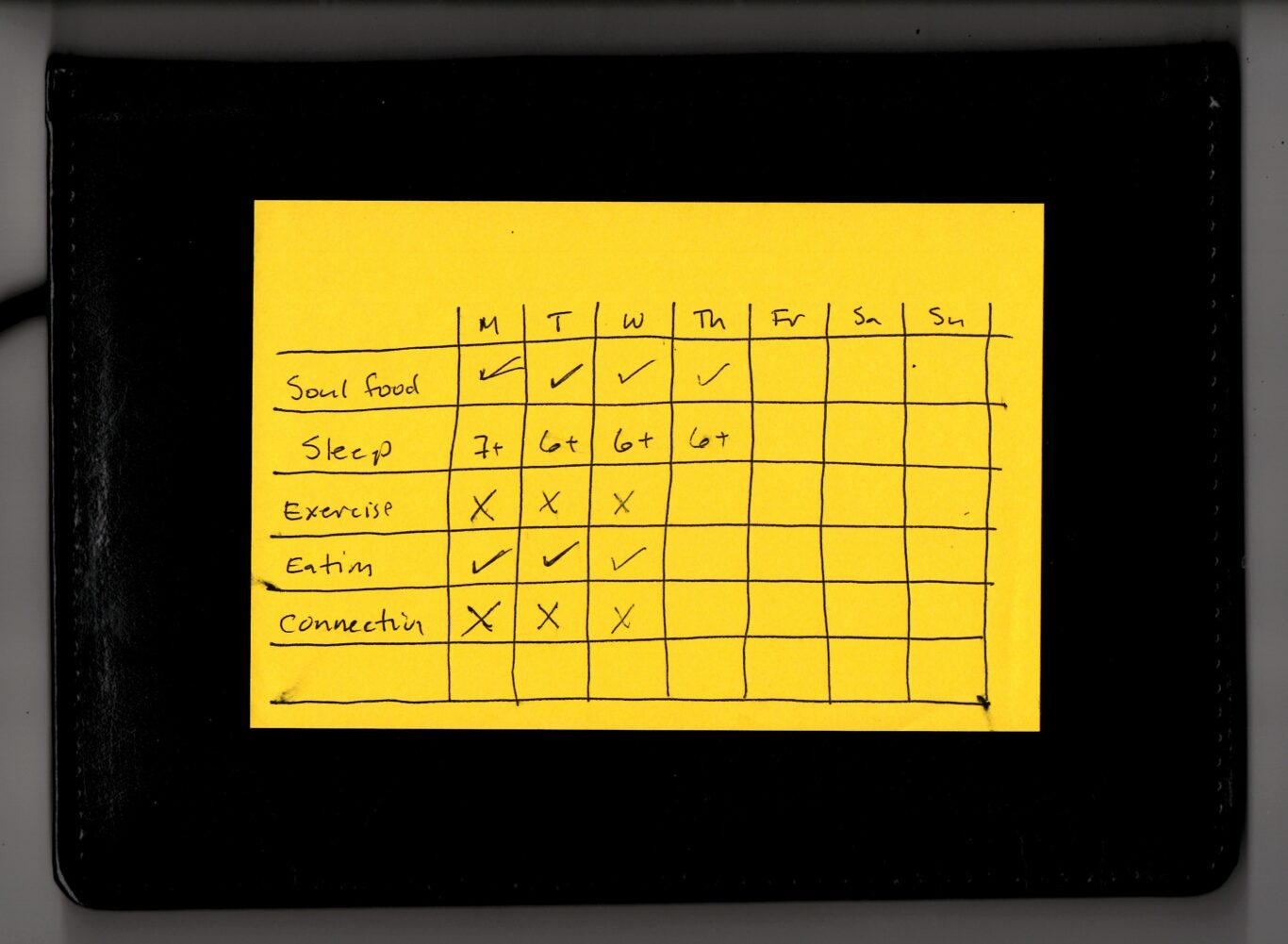Burnout. Just uttering the word seems to sap the energy out of you. For those of us who have experienced it, the word “burnout” may evoke some pretty strong mental images, emotions, or reminders of life events we’d rather forget.
Here’s my image. I’m sitting at the dinner table with my family, staring numbly at my food, not really feeling anything. It was at the end of a particularly difficult season as an entrepreneur and I had nothing left in my tank, so to speak. I remember feeling lonely despite the fact I wasn’t alone. You can probably relate to that.
There are lots of words for that place where we have that feeling of being exhausted, overwhelmed, void of passion for our work. Maybe we find ourselves procrastinating important tasks and focusing on simple, menial ones like shredding paper, paying bills, or even going through email. The good news is that once you’ve been there and recognized it, it’s easier to see it early and avoid experiencing it again.
What you should know about burnout.
Having been an entrepreneur for 14 years and experience as a leader in an entrepreneurial business, I have been to that point of exhaustion multiple times. Here are some pieces of wisdom I’ve learned about burning out.
It never sneaks up on you.
Maybe it takes you by surprise the first time or two, but once you’ve experienced it, you’ll realize what your signs and symptoms were before you hit that point of exhaustion. For me, I know if I start forgetting commitments like meetings or tasks, I need to ease up. My biggest sign of pre-burnout is when I start pulling away from social time with close friends.
When I notice these things happening, I know I’m pushing myself too hard and need to pull back. Pay attention and learn what your signs are.
The road out is slow.
Once you hit burnout, it takes patience and persistence to pull yourself out. Most often it starts with establishing more rigid boundaries, like saying “no” to things you don’t have capacity for. It might look like doubling down on managing your time to prioritize breaking where you 100% disconnect from whatever’s keeping you constantly busy, like work.
If your company runs on EOS, this is one reason we have so many tools around time management. One you might be familiar with called “Back to the Basics” leads you through a simple exercise to identify where you should start. If you want to learn more about how to use that tool, reach out to me.
It’s easier to prevent burnout than cure it.
This is often a hard truth for people to swallow. I have a phrase I like to use: “A gram of prevention is worth a kilogram of cure.” You’ll likely experience burnout multiple times in your life. When you hit that point, or see yourself on the road to it, you need to be able to answer the question: “What can I do to avoid burnout or lessen its impact on my life?” The ability to proactively avoid burnout based on past experiences is what we call “wisdom,” and it will save you so much time and energy.
Habits to help you avoid burnout.
Burnout is something scientists have researched deeply to understand. Many different scientific studies have helped shed light on key habits to help you avoid putting out more energy than you’re taking in. While I don’t want to batter you with research and statistics, here’s a summary of what habits the experts say you should develop.
- Consistently get enough good sleep.
- Exercise regularly and keep your body moving.
- Prioritize “unplugged time” away from work, phones, email, social media, etc.
- Spend focused time with family and close friends without distractions.
In my video, I talk about the one key activity I do daily to stay refreshed and focused on the things in my life that are most important. I write out this list by hand every week to track my progress and see where I might be falling short. Here are the five habits I focus on.

Feeding the Soul – Goal: 7 days/week
I want to start every day focusing on where I am, what I already have, and where I want to be. To fulfill my “soul food” goal, I want to make sure I never touch my email before I’ve had adequate devotional or prayer time.
Getting Good Sleep – Goal: 7 hours/night
If I can get at least seven hours of sleep per night, I know I’m setting myself up for success each day when I wake up. I’ve found that if I have two to three days where I get fewer than 6 hours of sleep, I need to get to bed early the next night to get back on track.
Exercising Regularly – Goal: 4 days/week
I wear an Apple Watch every day, and anyone who’s familiar with Apple Watches knows about the “three rings.” Each one stands for a different activity: moving, exercising, and standing. In order to “close my rings,” where each ring forms a complete circle, I need to be active and standing for enough time each day. While my goal is to close my rings at least four days per week, ideally I try to hit six days.
Eating Well – Goal: 7 days/week
This has become even more important to me since I switched to a plant-based diet. While it would be easy to fall back on grabbing a bag of potato chips when I’m hungry, eating minimal or no processed foods each week is a huge focus of mine. And when I eat well, I feel well, which cascades down into everything else.
Continuously Connecting – 4 days/week
To be my best self, I need to stay connected to my people. I’m still working on this goal, but I’ve found that reaching out to a friend or family member three to four times per week fulfills my need for human connection and interaction.
Where to go from here.
Awareness of burnout is the first step toward pulling yourself out of it and preventing it in the future. If you come away from this blog with two insights, I hope it’s knowledge of these two things:
- What are your personal warning signs that you are on the path to burnout?
- What are your habits that reverse energy drain, or what can you do weekly to avoid it all together?
When I tell people to Go Lead, that includes leading yourself. Be the leader you need and guide yourself to the sacred place where your work energizes you and your life fulfills you. By setting yourself up to heal and prevent burnout, you’ll have the time and energy for the aspects of life that mean the most to you. And not only that, but you can lead your teams to do the same.
